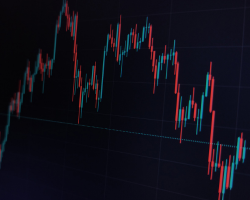Ways To Avoid Losses In Forex

For all traders, whether beginners or professionals, a very important thing to remember is to use proper capital management techniques. Considering that trading is a skill that is improved through experience, traders must learn how to avoid forex risk. Traders will avoid forex risk if they pay attention to the factors that affect the forex market and make a trading strategy before trading live.
Why Forex Traders Face Losses
The global forex market is one of the largest financial markets in the world. It attracts traders of all kinds, from beginners to professionals. Many people interested in trading are often wondering how easy is forex trading? People trade because the access to the forex market is easy, traders can operate with a little investment, so it doesn’t require a lot of finances. Traders do trade forex hoping to win a fortune, but many forex traders lose funds. Some of them have lost all their capital and decide to exit the market soon.
Unplanned, stressful trading will get traders nowhere except to lose funds in forex. Traders with little or no experience in live forex trading can lose finances or assets if they hadn’t done their homework on market conditions, technical and fundamental analysis, checking world events that are changing fast, and political factors too. The forex market is a dynamic environment, and traders must adapt to changing conditions.
The most asked question of traders is, why do forex traders lose capital? The answer to this is to go back and try to figure out what and where they went wrong and learn how to make a better strategy next time. But usually, many traders, instead of stopping and figuring out what went wrong, try to win the cash back, which means investing more funds. Finding the most common reasons why forex traders lose their capital will help them have a different angle when trading forex the next time. Also, it can help in creating a trading strategy that can get better with every trade.
There are ways to trade the forex and be successful in it, even if you are not a professional. There are ways to learn even how to turn a losing forex trade into a winning trade. Learning from their own mistakes in forex is the best lesson on how to not lose funds in forex for beginners. Traders should learn how to avoid losses on investments as competing in forex trading requires capital.
Learning about forex trading is essential to a trader’s success. Most of the knowledge about the forex market comes from experience in live trading. Traders need to closely watch the geopolitical and economic factors that affect preferred currencies. Forex traders also should estimate their strategy and implement good risk management, place stop-loss orders as soon as possible when losing on a trade, and move them later, when they have a reasonable return.

The Fastest Way To Lose Your Capital
The biggest mistake that most traders are making is trying to attain yield fast, and they are trying to do that by investing a small amount of initial capital. Forex beginners usually start with poor risk management. Risk management is the key to success in forex trading. Traders should not look to earn a sufficient income right away but to save what they already have. Indecisive trading is also a reason why forex traders often lose. Overtrading, trading too often or trading too much, having unrealistic expectations, and high-return goals all lead to failure in the forex market. Forex trading can be beneficial for traders, but reaching a high level of success is extremely challenging and takes a lot of hard work, research, and plenty of time.
The Safest way to trade forex
The main question for forex beginners is, how not to lose capital trading? Forex beginners need to work on their experience in a demo account first before trading live. That way, traders can work on their strategy and gain forex knowledge. When a beginner starts trading, the initial trades need to be with smaller lot sizes.
By starting small, a trader can evaluate their trading plan and gain more experience in placing precise order entries to will avoid risking the entire trading account in the process. Forex traders should always use a trading plan based on facts and stick to it, and that is a way for forex beginners not to lose funds. When trading leaves the boundaries of the trading plan, even if the trader is winning, it is considered a bad strategy.
Trading should be considered seriously and like a business that can increase expenses, losses, taxes, uncertainty, stress, and risk. Trading platforms give traders a lot of ways to view and analyze the markets. It is important not to use multiple analysis techniques when trading, so the trader can have a clear vision of the trade. Using more than one indicator, such as two oscillators, for example, can give wrong signals to the trader.
One other way of trading forex on the safe side is exploring the historical data, which will prevent losing funds. A very important part of safe trading is developing a trading plan, a systematic method for evaluating investments, calculating risk, how much should be taken, and short-term and long-term investment objectives. Traders should try to find a broker that offers the best conditions, amounts of leverage, commissions, and spreads. Traders also need to be prepared to adapt to changing market conditions, government policy, political influence, and world events.
Understanding the importance of each of these trading rules and how they work together can help a trader establish a successful trading business. Trading is hard work and needs patience. Traders who have the discipline to follow these rules can increase their odds of success in the dynamic world of trading. Understanding the markets and following its rules is a continuing process in which you learn all the way through. If you have lost capital trading, how to avoid losses s is a topic all new traders should consider.
- Reading of the table of quotes, in which several prices and volumes of transactions are presented for each type of equity securities:
- The opening price of the exchange session.
- The maximum price.
- The minimum price.
- The closing price of the exchange session.
- Daily turnover in the number of securities.
- Reading charts, which are a graphical reflection of tabular data, but are of different types and can be electronically adjusted to any interval - from one day to a full period of quotes of particular equity security on the exchange. Usually, charts reflect data in the form of vertical "bars" or "Japanese candlesticks".
- Understanding stock indices. Stock indices help brokers and investors obtain information not only on given equity security but also on the overall securities market. Stock indices are aggregated indices of price movement of the chosen securities set. At the moment there are about 2500 stock indices in the world), but you should pay attention to the main ones, like S&P or Dow Jones.
- Mastering the basics of financial mathematics, which involves being able to independently calculate gains, losses, relative amounts of gains and losses, returns, and loss. It is necessary to obtain a more or less objective, independent from the time of the trade, idea of its lucrativeness and to compare different trades by objective indices.
Undoubtedly, it is preferable not to start from 0, but to start with some education or follow some analytical sources, so that in the first stage you can better understand how the securities market functions. In any case, if you have decided to participate in the equity securities trading, you have to use the services of brokerage firms, which serve legal entities and individuals in the securities market, executing their orders for transactions with securities.
After choosing the brokerage company and opening a trading account to start buying and selling equity securities, you will need to install on your computer or smartphone a special software, which will be provided by the broker - the trading platform. Exactly through this program, it is possible to make transactions with securities in real-time. As a rule, all modern programs of this type are simple, convenient, and intuitive, so no technical difficulties should arise.
Securities analysis

As it is well-known, the purpose of any analysis is to predict the future price behavior of particular security as accurately as possible. Without analysis, investors and traders will blindly buy and sell securities, unaware of what is happening in the market. The most promising issuing companies may eventually fail. On the other hand, small and unsightly companies can quickly and unexpectedly turn into behemoths whose shares rise in value at an enormous rate. All market players analyze securities to have an idea of who is doing what in the market, which companies are developing and which are stagnating, in which equity securities one should invest and which ones should be sold.
Depending on how you perceive the market, you may belong to technical, fundamental, or mixed analysts. Fundamental analysis of a security is based on macro and microeconomic, demographic, environmental, financial, and even psychological factors affecting the equity securities price. Fundamental analysts follow the news, rely heavily on information, and may look for "insider" forecasts (i.e., illegal distribution of confidential information outside the company). The technical analyst likes to work exclusively with a price. He firmly believes that the price has already taken absolutely everything into account. From the perspective of a technical analyst, price is the result of a supply/demand struggle, and what happens before that (i.e., for what reason people buy and sell) is unimportant. Technical analysts are only guided by charts, although any analyst also uses them under convenience.
If you are going to earn on daily speculations, intraday trading on the stock market (day-trading), you will more often require methods of technical analysis. If you are investing for the long term, then you need to put aside the current turmoil and turn to fundamental analysis, which allows you to get to the root.
Each method of securities analysis has advantages and disadvantages. After trying both methods, analysts usually settle on one and go all the way with it. But it is important to remember that it is best to use the best of each method of securities analysis. Take the best of both technical and fundamental analysis, succeeding in both. Don't get hung up on one thing, be creative but diligent.
Conclusion
With the right approach, securities are a good way for investors to earn a living by lending to companies and governments. Buying a stock or bond is a vote for that company's future growth.
Securities put capital into the economy, helping both the investor and the issuer. But the irony is that investors, especially beginners, invest in securities without understanding their classification. And as a consequence, unsuccessful or even failed investments. You must agree that this is a weighty reason to know the types of securities and how they work.
About AdroFx
Being a well-established brokerage company, AdroFx offers the best trading conditions to its clients from 200 countries. Founded by experts with a couple of decades of the overall experience, AdroFx is one of the best platforms on the market for shares trading. Either a newbie or experienced trader, both will find here what they are looking for since the company provides various trading accounts for different trading styles and goals.










